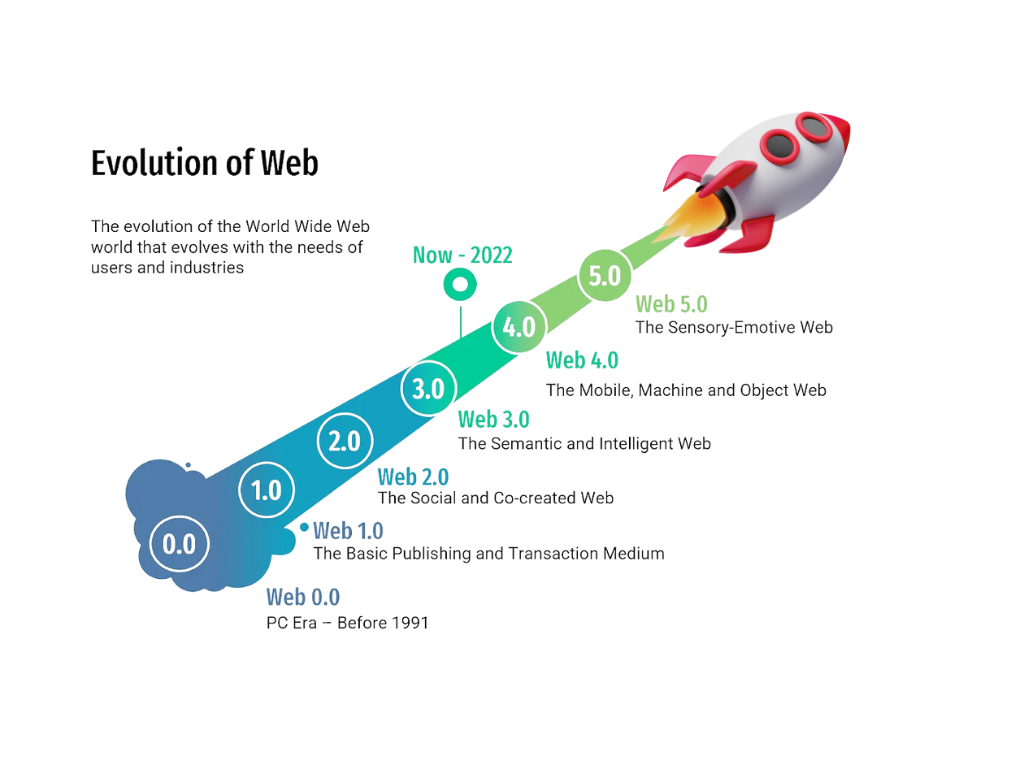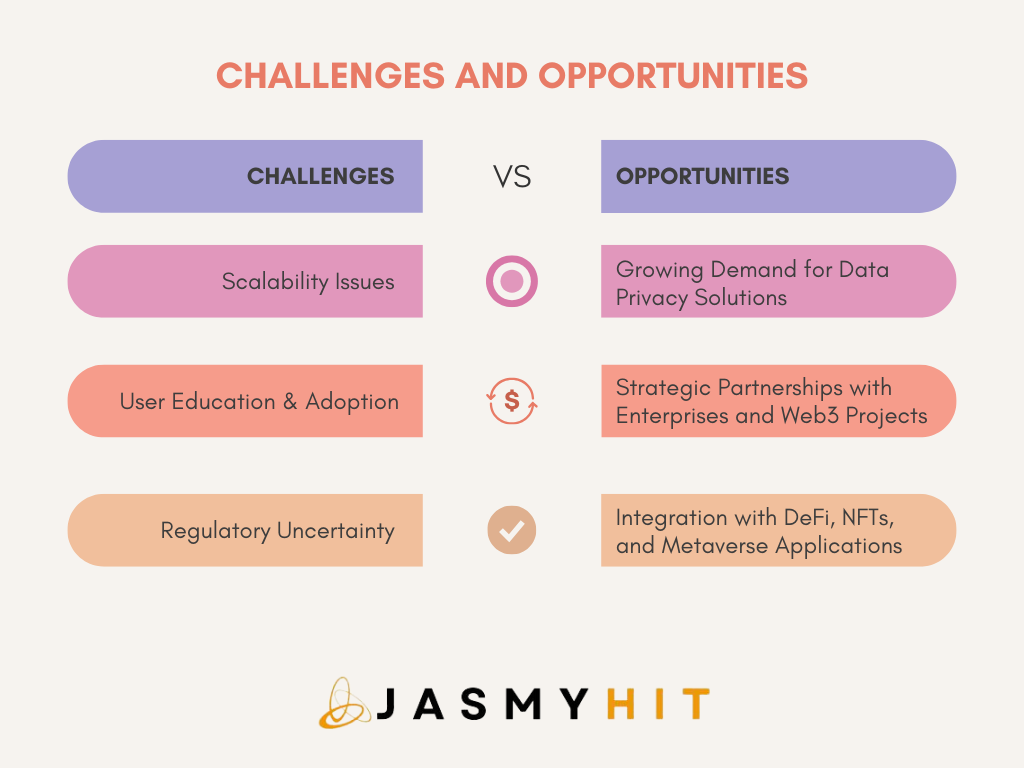Jasmy ID Web3: The Future of Data Ownership and Decentralization Explained
Fear of data leaks and privacy breaches has become a critical issue in today’s digital age. With the rise of online platforms, personal data is often collected, stored, and monetized without explicit user consent.
This lack of control has led to growing concerns over digital privacy. In the Web2 era, centralized platforms such as social media networks, e-commerce sites, and cloud service providers dominate data ownership. While Web2 made the internet more interactive, it came at the cost of individual control over personal information.
Now, Web3 and blockchain technology are shifting power back to users. Jasmy ID emerges as a groundbreaking solution to centralized data control, enabling self-sovereign identity where users fully own and manage their personal information. With Jasmy ID Web3, the future of data security, privacy, and digital identity is being redefined.
What is Jasmy ID?
Billed as Japan’s Bitcoin, Jasmy Coin is a tokenized platform that champions the democratization of data. It combines blockchain and IoT technology to create an infrastructure where anyone can securely store and manage their data.
Unlike traditional identity management systems that rely on centralized authorities, Jasmy empowers users to control their data on their own terms.
Here’s how it works:
- Self-Sovereign Identity: Users create and manage their digital identities independently, without depending on centralized entities.
- Complete Data Ownership: Individuals have full control over who can access their data and for what purpose.
- Decentralized Security: Data is stored across a decentralized network, protecting it from breaches and unauthorized access.
The Role of Web3 in Data Ownership
Web3 represents the next evolution of the internet, where decentralization and user empowerment take center stage.
Unlike Web2, which relies on centralized control, Web3 leverages blockchain, smart contracts, and decentralized networks to return power to users.
Evolution of the Web

Web 1.0 (The Read-Only Web)
Static websites with limited user interaction (1990s to early 2000s).
Web 2.0 (The Social Web)
Interactive platforms dominated by centralized companies like Google and Facebook (Mid-2000s to present).
Web 3.0 (The Decentralized Web)
Built on blockchain, emphasizing transparency and user control (emerging now).
Jasmy ID plays a crucial role in Web3’s vision by providing a decentralized identity solution that enhances data ownership and user autonomy.
Here’s Why Jasmy ID Is Critical to the Web3 Ecosystem.
- User-Centric Design
- Blockchain-Powered Security
- Interoperability
- Empowering the Digital Economy
How Jasmy ID is Shaping the Future of Web3
Jasmy ID is revolutionizing how individuals and organizations interact with data in the Web3 ecosystem. By leveraging blockchain and decentralized identity (DID) technology, it gives users full control over their personal data.
At the core of this system are Personal Data Cabinets (PDCs)—secure, user-controlled storage units that allow individuals to manage and share their data on their own terms.
How Jasmy ID Works?
Jasmy ID operates on two fundamental concepts:
- Personal Data Cabinets (PDCs)
- Decentralized Identity (DID)
1. Personal Data Cabinets (PDCs)
PDCs are secure, decentralized storage units where users store and manage their personal information without relying on third parties. This ensures full control over who accesses their data.
2. Decentralized Identity (DID)
DID is a blockchain-based identity system that allows users to authenticate themselves without exposing unnecessary personal details. It eliminates reliance on traditional login credentials, reducing the risk of data breaches.
By combining these elements, Jasmy ID creates a robust framework for self-sovereign identity, secure data management, and privacy-preserving transactions in the Web3 ecosystem.
What Are Real-World Use Cases for Jasmy ID Web3?
✅ Smart Home Security: Jasmy ID manages access to IoT devices like security cameras and smart locks, ensuring privacy and control.
✅ Decentralized Finance (DeFi): Users can verify their identity in DeFi applications without intermediaries, reducing data breach risks.
✅ Privacy-Focused Online Sign-Ups: Users can share only essential details—such as an email or age—without revealing sensitive personal information.
Whether securing IoT ecosystems, enabling privacy-centric data sharing, or streamlining identity verification in Web3 applications, Jasmy ID is at the forefront of the decentralized revolution.
As Web3 continues to evolve, solutions like Jasmy ID will be crucial in building a secure, transparent, and user-centric digital world.
What Are the Key Benefits of Jasmy ID in Web3?
From enhanced security to user empowerment and seamless integration, Jasmy ID is paving the way for a more secure, transparent, and user-centric internet.
Here are the key benefits:
- Enhanced Security: Blockchain technology secures personal data from unauthorized access.
- User Empowerment: Individuals control their digital identities without relying on centralized authorities.
- Seamless Web3 Integration: Jasmy ID ensures smooth interaction with dApps and DeFi platforms.
- Data Monetization: Users can decide how and when to share their data, creating new revenue opportunities.
Want to know how to buy Jasmy Coin?
What Are the Challenges and Opportunities for Jasmy ID?

Challenges
- Scalability Issues
The adoption of decentralized identity systems, like Jasmy ID, is still in its infancy, and scaling to a global user base remains a challenge. - User Education & Adoption
A large portion of the population still lacks understanding of Web3 concepts, making it difficult for users to fully embrace decentralized identity solutions. - Regulatory Uncertainty
Governments and regulatory bodies are still working to establish clear guidelines for Web3 technologies, which could impact the widespread adoption and implementation of Jasmy ID.
Opportunities
- Growing Demand for Data Privacy Solutions
As concerns over data privacy intensify, decentralized identities like Jasmy ID offer a solution that allows users to regain control over their personal data. - Strategic Partnerships with Enterprises and Web3 Projects
Jasmy’s collaborations with enterprises and Web3 projects position it as a key player in the expanding Web3 ecosystem, facilitating adoption and integration. - Integration with DeFi, NFTs, and Metaverse Applications
Jasmy ID’s potential for seamless integration with decentralized finance (DeFi), NFTs, and metaverse platforms opens up numerous avenues for growth and innovation within the Web3 space.
Jasmy ID Adoption in Japan and Beyond
Japan has been at the forefront of Jasmy ID adoption due to its strong regulatory framework and focus on data security. Sectors such as finance, healthcare, and IoT are actively exploring its use for secure identity management.
As Web3 adoption grows globally, Jasmy’s influence is expanding, with increased interest from enterprises and blockchain projects worldwide.
Rising Global Awareness of Data Privacy—More businesses and individuals are seeking decentralized identity solutions.
Web3 Integration—Jasmy ID is being explored for use in decentralized applications (dApps), metaverse platforms, and blockchain-based authentication systems.
How Does Jasmy ID Stand Out from Other Identity Solutions?
The decentralized identity space is highly competitive, with established players like Microsoft’s ION, Sovrin, and Civic offering similar solutions.
Jasmy ID differentiates itself by focusing on IoT integration, data democratization, and strong adoption in Japan, positioning it as a unique player in the Web3 identity landscape.
What Does the Future Look Like for Jasmy ID?
Jasmy ID’s adoption is expected to rise as demand for decentralized identity solutions grows.
Key developments to watch:
📌 Expansion into industries like healthcare, finance, and education.
📌 Deeper integration with blockchain ecosystems worldwide.
📌 Government collaborations for public-sector identity applications
Strategic Partnerships Strengthening Jasmy’s Growth
Panasonic: In March 2024, Jasmy partnered with Panasonic to develop a Web3 platform aimed at connecting personal data within the Internet of Things (IoT) sector.

Unverified or Speculative Partnerships:
- Apple
- Sony
- KPMG
Final Thoughts
Jasmy ID Web3 is at the forefront of the decentralized revolution, providing a user-centric identity solution that prioritizes security and privacy. As Web3 continues to evolve, solutions like Jasmy ID will be critical in building a more secure, transparent, and user-controlled internet.
Would you trust Jasmy ID to manage your data securely? Let us know your thoughts!
Source here.
.jpg)
.jpg)
Comments
Post a Comment